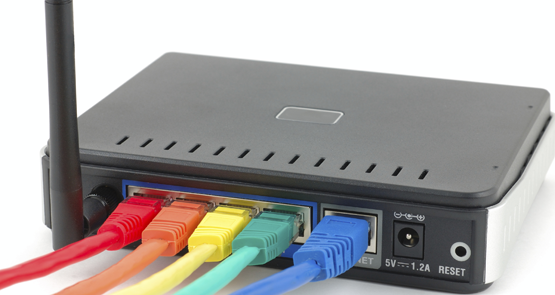You’re at an airport, out shopping, using iTunes or creating a new social media account when the inevitable terms and conditions page comes up. But who has time to read these things? You just need your free wi-fi, and you need it now. But once you click accept, there’s always a niggling voice in your head that says you probably should have read that.
Yes, you probably should’ve, and with good reason.
Data services company Skyfii recently secured long-term contracts to supply and manage free wi-fi services in over 30 Westfield shopping centres and the MLC Centre in Sydney. Whenever a user registers for and accesses the wi-fi service, everything from social media use, shopping behaviour to how long a customer spends in a store is tracked and logged.
While the rest of the media is finally catching up to Crikey‘s Bernard Keane and beginning to pay attention to the insidious issue of data retention, what about all of the data and privacy we willingly give up to companies and private enterprises all the time?
If you’re dealing with an Australian company, you have the legal right to ask for access to your personal information and have it corrected and/or deleted. But most popular social media companies are owned by overseas companies.
While the use of this information is perfectly legal, some people may be surprised at how many companies store, track and even sell your personal information, so here’s a little breakdown.
Facebook
The content you share, how long you view it, the geographical location of photos and groups you like to share with are just some of the types of information Facebook stores, even if you delete this information off an active account. This information is then shared with third-party companies so they can show advertisements that will be most effective. Don’t worry, the information has been “aggregated” so that you can’t be personally identified. So it says.
Flybuys
The Coles loyalty program does not sell your personal data to just anyone — it only sells it to “trusted operational suppliers and participants”. Your name, contact details, and payment and transaction details — and, of course, the ages of family members — are all shared with Coles’ suppliers based in the United States and South Africa.
eBay
Shopping online can make some people particularly nervous about online privacy as it involves sharing your credit card details. Your name, address, credit card number and transaction details are stored, but cookies, web beacons, unique identifiers, and similar technologies are also used to maximise advertising and marketing from third-party websites.
Gmail
Even if you only have a Google account to use Gmail, those details you provided to create the account are more interconnected than you might realise. Since April 2011, users have been required to link their Google accounts to YouTube in order to keep using that service. Location, browser history and videos watched are all shared with Google’s partners. Nothing that would personally identify you, though, of course.
Google analytics
Google truly does rule the world. This is the most widely used statistic service, providing details about a website’s traffic and traffic sources by tracking visitors from search engines and social networks. With the ubiquity of Google, nothing you share, say or search is off limits.
Skype
There is something slightly chilling about websites that involve webcams storing and sharing your personal information. Skype admits to logging your information through cookies and sharing this with third parties with your consent, but is rather vague on that last point.
Apple
Apple’s terms and conditions are notoriously long and complex, but it may just be work a read. “Performance” and “functionality” cookies are used to target customers for advertising and even to store your geographic location each time you access a website.
The rest
In 2012, Edward Snowden leaked documents to The Guardian about an NSA surveillance program known as PRISM that had direct server access to sites like Facebook, Yahoo, Google and AOL. While they all denied knowing anything about this program, leaked documents dated April 2013 state that it allows the NSA to “receive” emails, video clips, photos, voice and video calls, and social networking details.
There is no doubt that our lives are lived just as much online as they are out in the world, so it’s important not to become complacent about who we share our personal information with, where it goes and who has access to it.









Why on earth is there 5 types of patch cords used on that switch in the picture, and no power connected?
Sorry…
The internet’s intrusion into our private lives is insidious, inexorable and intimidating.
Kristian – could it be a hint as to how to not be tracked?
No power, no cry sorta thang?